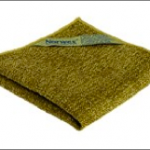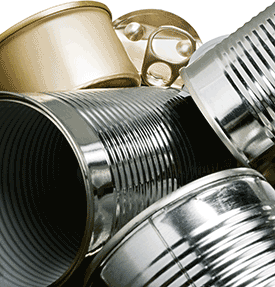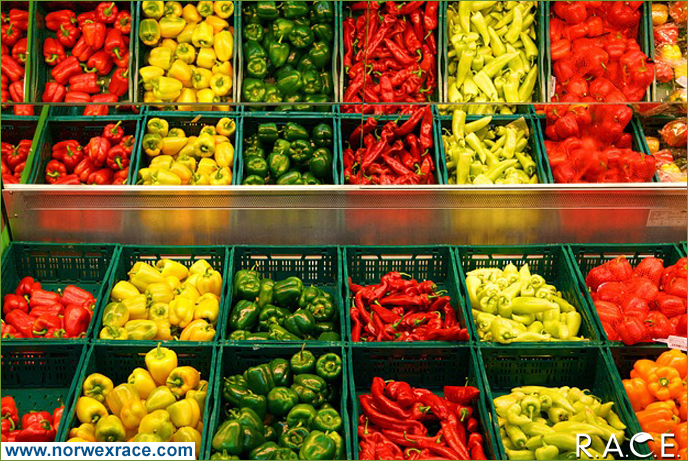Ten Ways to Make Sure You’re Not Eating Chemicals
Chemicals come into our lives—and into our bodies—in a lot of different ways. And while we can certainly benefit from healthy, nutritious foods, they can harm us when they contain chemicals. Just a quick online search turns up study after study linking the prevalence of chemicals in our food, air and water to diseases and disorders that ravage not only our environment but our bodies too.
For almost 20 years, the Norwex Mission has been to improve quality of life by radically reducing the use of chemicals. We do this through our environmentally friendly products, as well as a commitment to continual learning about the evils of chemicals and sharing how we can all take steps to reduce them in our world. Our goal is to leave a lasting legacy of a cleaner, healthier world for our kids and grandkids.
To that end, here are ten easy ways to help ensure you’re not feeding chemicals to your family.
- Choose Organic Food—Organic produce is grown without pesticides, so this is a great way to cut down on chemicals you and your family ingest. Look for the USDA Organic seal on packaged items and use the Environmental Working Group’s Shoppers Guide to Pesticides to find out what’s most likely to be contaminated. (Hint: Choose organic for apples, celery, cherry tomatoes, cucumbers, grapes, hot peppers, imported nectarines, peaches, potatoes, spinach, strawberries, sweet bell peppers, kale/collard greens and summer squash.)
 Use Norwex Veggie & Fruit Scrub Cloth—They will help ensure all your produce is completely free of fertilizers, waxes, soil and other harmful contaminants.
Use Norwex Veggie & Fruit Scrub Cloth—They will help ensure all your produce is completely free of fertilizers, waxes, soil and other harmful contaminants.- Buy Clean Meat—Choose beef, pork, and poultry raised without antibiotics or hormones.
 Limit Canned Food—Most cans used for food products—including a third of all infant formula—are lined with a resin that contains bisphenol A (BPA), a known endocrine disruptor. Here’s an overview of canned products with and without BPA.
Limit Canned Food—Most cans used for food products—including a third of all infant formula—are lined with a resin that contains bisphenol A (BPA), a known endocrine disruptor. Here’s an overview of canned products with and without BPA.- Pop Corn the Old-Fashioned Way—Did you know that microwave popcorn bags are lined with toxic perfluorooctanoic acid (PFOA)? This possible carcinogen shows up in french fry cups and pizza boxes as well as non-stick cookware, which brings us to number 6 on our list…
- Toss the Teflon—Most non-stick cookware is made using PFOAs, a toxic chemical linked to cancer and other health issues. Choose stainless steel, cast iron or enameled pots and pans instead. If you are “stuck” with your Teflon® for a bit longer, at least make sure to never overheat it (use only medium or low heat) and never leave dry or empty cookware on a hot burner or in a hot oven.
- Don’t Microwave Plastic—Because heat causes chemicals to leach from plastic containers into food, avoid using any and all plastic in your microwave. Instead, transfer food to glass or ceramic containers labeled for microwave oven use.
- Buy BPA-Free—When purchasing plastic water bottles, food storage containers, baby bottles and sippy cups, make sure the label says they are BPA-free.
- Filter Your Drinking Water—Remove common contaminants like lead and arsenic from your family’s drinking water using a faucet filter or a water pitcher filter unit. Not sure which type to get? Here are several different types of water filters and their benefits.
- Read labels—Look for key words like “BPA-free,” “lead-free,” “USDA Organic” and “non-toxic” to guide your purchase decisions. Be vigilant in scouring ingredient lists for chemicals of concern.
We hope these easy ideas can lead to some positive changes for you and your family. And please feel free to share them with others to help spread awareness about the dangers of chemicals! Remember, October 26 is Commitment Day—Make Your 30-Day Commitment to small changes that can make a big difference in the Race Against Chemicals in the Environment.
Resources:
http://saferchemicals.org/2011/02/10/top-tips-to-keep-toxic-chemicals-at-bay/
http://www.inspirationgreen.com/bpa-lined-cans.html
http://www.ewg.org/foodnews/
http://cookingequipment.about.com/od/cookware/f/What-Is-Pfoa.htm
http://www.nrdc.org/water/drinking/gfilters.asp


 Use Norwex Veggie & Fruit Scrub Cloth—They will help ensure all your produce is completely free of fertilizers, waxes, soil and other harmful contaminants.
Use Norwex Veggie & Fruit Scrub Cloth—They will help ensure all your produce is completely free of fertilizers, waxes, soil and other harmful contaminants. Limit Canned Food—Most cans used for food products—including a third of all infant formula—are lined with a resin that contains bisphenol A (BPA), a known endocrine disruptor. Here’s an overview of canned products with and without BPA.
Limit Canned Food—Most cans used for food products—including a third of all infant formula—are lined with a resin that contains bisphenol A (BPA), a known endocrine disruptor. Here’s an overview of canned products with and without BPA.
Great info!
Going to try to make changes… One day at a time… 🙂
Interesting Read!
Very helpful information on how to help keep my family safer from chemicals.
We got rid of our microwave altogether and haven’t even missed it! What I DO enjoy is the extra counter space!
Now on to some of these other things!!
Wow!!! Where do you start. It seems like I have been doing terrible things to my family for years.
great information. def am going to make changes for a better healthy living environment and make sure fresh fruits and veggies are cleaner.
I am trying to ditch the plastic, but the family is bucking me on that one. Otherwise we’ve got every thing else on the list down! Thanks!
OMG! My kids eat microwave popcorn all the time :/ YUCK
Great information……didn’t realize that canned goods were lined with bpa
Thanks Jeanne, yes that was a surprise to us too!
GREAT TIPS, I especially try to avoid BPA!
Great information!!!